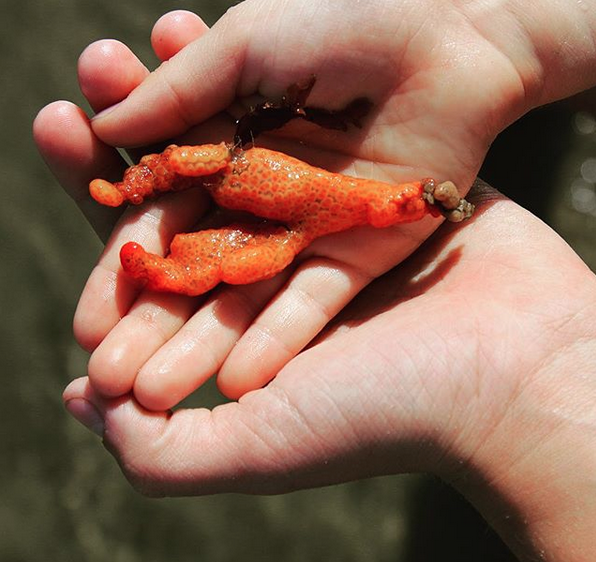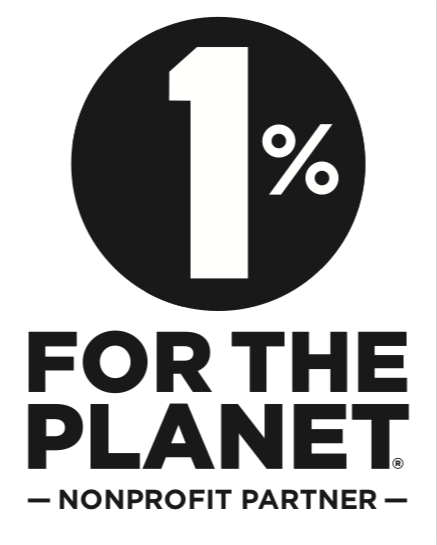
What 5 R’s Can Do For Our World
Written by, Vanessa Cole October 2018
As parents and community members we have compiled information to introduce what we call the 5 R's. We are not experts, but instead informed participants, forever seeking solutions to our very serious environmental crisis. These 5 R's, when enacted in legions of communities, we believe, can offer the opportunities to get us back on track for a healthy planet, which is a responsibility we all share, for our children.
REDUCE, REUSE, REFUSE, RECYCLE, REGENERATE
We'd like to inspire your PARTICIPATION, with us, in making these 5 R's part of your NORM. All of our kids will thank us, if we do. We're pretty sure each family and educator is going to interpret the 5 R's slightly differently and we know that every IMPROVED EFFORT matters, so GO, TAKE THESE 5 R's and inspire health, regeneration and PARTICIPATION with them in your family, school and community!!
P.S. Educators: if you aren't an AP Give Recipient yet, check out our footer Give Link to learn more about the KIND IDEAS GIVE Program. This support sequence opens some great, FREE tools to help you inspire & ACTIVATE some KIND IDEAS using the 5 R's in your community!
Asking Why It All Matters & SOME Solutions for BETTER
Here, we offer information that we've found helpful, where to find resources and why it all MATTERS SO MUCH. We think that once you're informed of a few things (things we we were in the dark about, like recycling contamination?!) you'll make every effort to make the 5 R's part of your family's daily lifestyle and your classroom efforts, and this will make an impact for all of us!
We started by ASKING OURSELVES a few simple questions & researching some potential SOLUTIONS & ways we could participate in these solutions. This helped us make our lifestyle changes more of a priority. We offer the following:
- Where does your trash go when you throw it into the bin and wave good-bye to the trash man?
- What happens to the "recyclables" when they are dumped into the big blue truck?
- For all the birthday parties, holidays, celebratory rewards, start of school year, new season shopping binges you go on, how LONG will those items stay in your use before you toss them away? Where will they go when you no longer value them? Are they recyclable?
- What impact do my shopping habits really have?
- How can I separate our trash to contribute the lowest amount of waste? Why does this matter?
- How can our family contribute to a smaller carbon footprint?
- By 2050, the oceans of our planet will contain more plastic than fish, by weight. On a global level, our reliance on single-use plastic packaging is overwhelming our planet. The founder, Dianna Cohen of Plastic Pollutes has made it her mission to end the cycle of plastic use. How? Learn more about the Plastic Pollution Coalition & the 5 Gyres Institute.
- We offer the Plastic Pollution Coalition's Plastic Free Living Guides.
- Great tools for family, school and community level participation can be found in the SurfRider Foundation's Rise Above Plastics Program and the SurfRider Foundation's Ocean Friendly Gardens Program.
- We also offer business' a recommendation to call Plastic Pollution Solutions and the SurfRider Foundation's Ocean Friendly Restaurants Guide which provides an effective roadmap & tools for restaurants to understand how they can reduce their impact, and for community activists to provide solutions to inspire their local restaurants!
When we become mindful of these questions and their answers we realize how important it is for all of us to participate in the health crisis of our planet! We found some very helpful starting points at our local senator's office and our city, Thousand Oaks, CA recently adopted a Sustainability Plan for operating the city in a clean, efficient and environmentally friendly way. We recommend you learn more about the sustainability measures your city is participating in and how your family or classroom can get involved. If your city doesn't have one, learn about our city's sustainability plan and take it to your leadership!
The San Francisco Gate offers that items people throw out all take energy to make; many of them are not biodegradable and may take centuries to break down. According to the U.S. Environmental Protection Agency, Americans produced 4.3 lbs. of trash per person per day in 2009.
The 5 R's
REDUCE. Refers to reducing your consumption, buying less and properly conserving and utilizing energy, water and natural resources (this will reduce our carbon footprint). As communities we can be successful at reducing our carbon footprint, which contributes to global warming) through many simple opportunities, like shifting our mindset to BUY & USE LESS by, "dimming the glitter of the brand new bauble and shine light, instead on the well-made, useful, but not necessarily new thing" [The Business of Changing the World by, Vincent Stanley]. We can walk, bike or carpool, change our household & business light bulbs to CFLs, unplug our unused power cords and turn off power strips when not in use, set our thermostat to cool 78 and warm 68, reduce our water consumption (19% of California's electricity is used to pump, transport and treat water), use energy efficient appliances, go solar, cut down on yard waste by composting and grasscycling (visit the CalRecycle site for more information ). Finally, many people don't realize, but OUR FOOD CHOICES, because of current agricultural practices, make one of the largest carbon footprints we leave... there are solutions. Please learn more about this by reading some of our other articles & visiting our NUTRITION TOOLBOX to view a short video clip and download a free flyer. Eating less meat, especially red meat and buying only organic fruits and vegetables is a step in the right direction!
REUSE. Rather than throwing out items like clothing or food jars, consumers can find new uses for them -- and thereby reduce their consumption of new resources. Composting, refusing to purchase single use plastic, re-using jars to store beverages or leftover food, and trading or re-selling items are all ways your community can reuse. Like reducing, reusing avoids creating waste rather than trying to recycle it once it's already there. Purchasing higher quality clothing & lifestyle items with the intent to keep them in use longer and without replacing them before their use is up, is another more sustainable alternative. We can find new uses for old things instead of throwing them into the trash, where they end up in overfilled landfills.
RECYCLE. We can PROPERLY recycle our waste. "Historically, when we threw away recyclables, that 'away' was to China, for the most part. In the summer of 2017 China issued a ban on many recyclables in an effort to protect the health of its citizens. China now only accepts a very limited amount of CLEAN & UNCONTAMINATED material." What does this mean for the U.S.? This means our "RECYCLABLES" are currently stock piling and being sent to landfills or countries without waste management systems... so it ends up polluting the planet. Plastics can live for hundreds to thousands of years and these landfills are quickly filling to capacity! Few people know or even realize that even bio-plastics are going to landfills because cities where they are being introduced and used by unaware consumers (who believe they will be recycled), don't have the proper city recycling infrastructure to recycle these items.
We can not RECYCLE OUR WAY OUT OF OUR WASTE. RECYCLING IS NO LONGER A SUSTAINABLE SOLUTION, so we must all participate in more aggressive REDUCE & REUSE solutions.
WHAT ARE PROPER RECYCLING PRACTICES (that reduce contamination)?
- Keep PLASTIC BAGS (and film/wrap) OUT of your recycling bin (this is why we need to find alternatives to USING plastic, especially single use plastic!)
- RINSE food-contaminated containers
- Keep NON-RECYCLABLES OUT of your recycling bin (no trash, medical waste, needles, medications or pharmaceuticals, no human or pet waste, diapers, or personal hygiene products.)
*When you start noticing what ISN'T recyclable, you realize how important it is to use your purchase power to...
REFUSE. When we refuse to purchase products and services that don't consider the environmental (and human) impact of it's product or supply chain, we are participating in solutions for BETTER. Instead of a plastic cup and straw at your favorite coffee spot, buy a re-usable straw and cup and use it daily, or bring it with you to use when you're out. Instead of buying plastic baggies for your child's lunch, purchase a PlanetBox or other re-usable solution and go ZERO WASTE with school lunches. (read our article: Solutions for Eco-Friendly School Lunches). When shopping for the new school year, look at how the stores you're buying from, source their materials and what sustainability practices they have (usually a link on their website footer for social responsibility). The COMMERCE FOOTPRINT is large, and needs to start providing plastic free alternatives to packaging, they will only do this prompted by their consumers. Teachers can participate in creating start of year classroom supply request lists that promote responsible choices, 1% for the Planet Organization has some exceptional business' who offer sustainable school supplies. YOUR PURCHASE POWER MAKES AN IMPACT. The 1% for the Planet network is comprised of companies who share these values, and this global community is growing every day!
REGENERATE. To regrow. The final R, is perhaps the most important. As a family, when we talked about this environmental solution, we read a couple of books (see one in our Nutrition Toolbox and the other was, The Giving Tree by Shel Silverstein (avail in our book list). These stories helped our children understand that when we continue to take from something without giving back, eventually that (re)source runs out. We have quite a situation for our Mother Earth's natural resources, for this very reason. If we continue to deplete our natural resources at the rate we currently are, without care or thought to regenerate them, they will be lost forever. There is no make up for FOREVER. Our children will inherit the world we hand to them. Plastic Pollution and the depletion of many other natural resources is destroying our planet. Right now, chemical agriculture is destroying topsoil 10 times faster than it can be replenished, offering only 60 years of soil sustainability with these practices. Without soil, no crops can be grown. Our NUTRITION TOOLBOX, offers a video about solutions that exist for some of our most pressing, life sustaining environmental challenges, like regenerative organic agriculture. We urge you to learn more and adopt ways of contributing within your family lifestyle and educational platform. School and family level composting and organic gardening are great steps in the right direction!
Participating in our Planet's Health is ALL OF OUR RESPONSIBILITY
Contributing to a healthy planet is all of our responsibility, and we all have a role. We invite you to join us in taking our own responsibility as families, community members and world citizens to contribute to solutions that have already begun to impact us, in our lifetimes. Participate and mobilize others in small or large ways, it all makes an impact.

